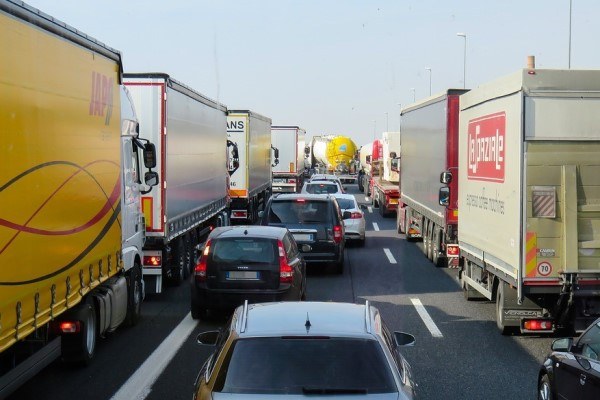Media releases
Freight transport belongs on the rails
The ambitious proposed revision to the infrastructure costs directive, adopted by the European Parliament in October 2018, is to be brought to a conclusion under the German presidency of the EU Council. However, Andreas Scheuer, the German minister for transport, has proposed an exemption from all tolls for so-called zero-emission vehicles. The EU ministers of transport may agree to this at their Council meeting, to be held on 28 September 2020.
In principle, CIPRA welcomes the CO2 differentiation in toll charges, as this will also contribute to reaching the objectives of the European “Green Deal”. This should not, however, negate the main goal of shifting traffic from road to rail, as Kaspar Schuler, co-director of CIPRA emphasises: “Even if average vehicle emissions continue to fall thanks to new engines, the toll must be designed in accordance with the polluter-pays principle. Noise, congestion and increased infrastructure costs are also caused by low-emission trucks and they must be charged accordingly. Only with substantial charges for all trucks will there be an effective shift from road to rail”.
Three demands to protect the Alpine regions
On behalf of the people of the Alps suffering from noise and exhaust fumes, CIPRA, the International Commission for the Protection of the Alps and its approximately 100 member organisations, together with the iMonitraf! network (www.imonitraf.org), which connects the Alpine regions along the major transit corridors, is appealing to the ministers of transport, health and environment of the Alpine states. The detailed demands can be read in their joint position paper.
Three cornerstones of the Eurovignette Directive must be preserved and strengthened:
1. The right incentives for a modal shift from road to rail must be created and thus contribute to reflecting the true costs of road transport. To this end, a high toll mark-up must be introduced for mountain regions on all transnational Alpine corridors.
2. The external costs of freight transport are much higher in mountain regions than in flatter areas. For this reason, the Mountain Factor 2 in the current version of the infrastructure costs directive must be increased to factor 4.
3. A complete exemption of emission-free heavy goods traffic from the toll (for so-called zero-emission vehicles) will contradict the polluter-pays principle. First, CO2 emissions are generated over the entire lifecycle of a vehicle. Second, zero-emission vehicles also generate noise, congestion and infrastructure costs.
CIPRA emphasises that the Alpine Convention, signed by all Alpine states back in 1991, and its Transport Protocol (adopted in 2000) of themselves make it compulsory to fully integrate all external costs, as well as to apply the polluter-pays principle.
For further information and questions, please contact:
Kaspar Schuler, Co-Director CIPRA International, [email protected], +423 79 300 55
Michael Gams, communication, CIPRA International, [email protected]
| Type | Title |
|---|---|
|
|
Media Release, 01.09.2020 Eurovignette Directive |






